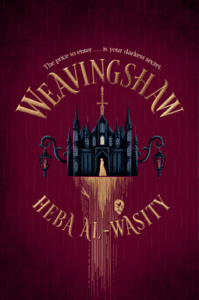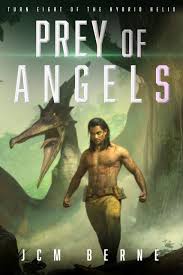
Synopsis
Daedalus of Crete is many things: the greatest architect in the world; the constructor of the Labyrinth that imprisoned the Minotaur; and the grieving father of Icarus, the boy who plunged into the sea as they flew from the grasp of the tyrannical King Minos.
Now, Daedalus seeks to reunite with Icarus in the underworld even as he revisits his own memories of Crete, hoping to understand what went so terribly wrong at the end of his son’s life. Daedalus will confront any terror to see Icarus again – whether it be the vengeful spirit of Minos, the cunning Queen Persephone or the insatiable ghost of the Minotaur.
But the truth, stalking Daedalus in the labyrinth of his own heart, might be too monstrous for him to bear . . .
Review
This mythological reimagining strikes some surprising notes as it plays a familiar tune in an unexpected way.
We all know the story of Icarus. He escapes prison by flying too close to the sun. Why? Why throw away his escape? That’s the question Icarus’s father, Daedalus, is struggling to answer. After all, he’s the other guy with the wings, and he managed to escape just fine.
The novella takes a speculative look at what happens to Daedalus after Icarus’s story ends. It follows the journey he goes on to understand why his son would do such a thing. The whole novella is being told by Daedalus as if he is talking directly to Icarus, recounting his life to his lost son, and this adds so much power to the touching and personal story being explored here. It really helps to put you in the shoes of a father who is grieving, unable to let go of his hurt until he’s found and understood his son.
Of course, it wouldn’t be a Greek myth without a trip to the underworld and Mount Olympus. The way the gods are presented is done with style, and what’s most impressive is how the story feels grounded despite their fantastical and mythological presence. Importantly, it never comes across as gimmicky. Instead, you can almost taste the author’s passion for myths bleeding through the page as each character and emotion feels authentic and lived in.
As well as the Icarus legend, the book gives the whole context for what led up to that escape, including the incident with the minotaur. I’ve never thought so deeply about what it would be like to be a minotaur before. It really made me reconsider that whole scenario with the maze, and I loved how Daedalus, who so often is relegated to a bit-part in other heroes’ stories, wrestled with his own internal beasts for having committed atrocities in the name of serving kings and gods.
There’s a non-linear element to the way the novella unfolds, and I absolutely loved the whole flavour of it. It felt epic, but modern. Experimental, but mainstream. There’s so much to admire in this debut.
If you’re a fan of mythology, this is obviously going to tick all your boxes. But if you’re also on the lookout for a tender, deeply personal and sensitive portrait of a broken father trying to understand his lost son, then you should definitely pick this up.
What starts as a story you’ve heard before quickly spirals into something new and exciting. This is a novella that crafts its own set of wings and absolutely soars.







Leave a Reply